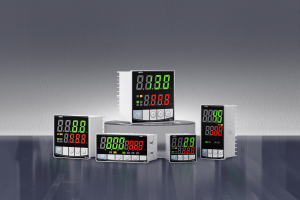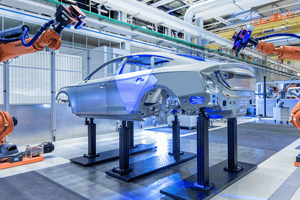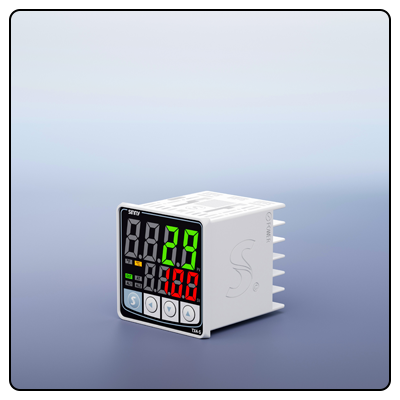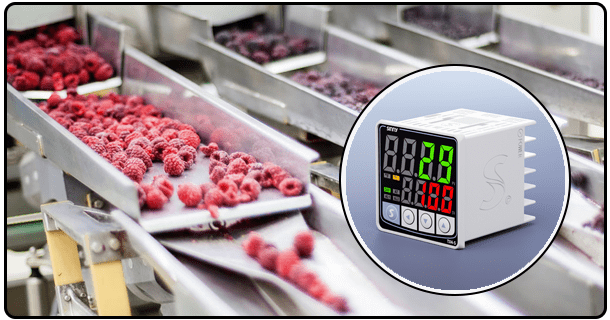The Role of Industrial Temperature Controllers in Manufacturing
Discover the role of industrial temperature controllers in modern manufacturing. Learn about their types, key features, applications, benefits, and challenges in implementation.
1. Introduction
Modern manufacturing relies on precise temperature regulation for maximum efficiency, safety, and product quality. Industrial temperature controllers play an essential role in keeping temperatures within set parameters while meeting desired limits and thresholds. This article explores their various types, key features, application benefits, implementation barriers, and hurdles in more depth.
2. Types of Industrial Temperature Controllers
Analog Temperature Controllers: Analog temperature controllers are an economical, user-friendly choice that offers basic temperature regulation capabilities; their straightforward user experience makes these models the perfect option in environments without needing advanced features for temperature management.
Digital Temperature Controllers: Digital temperature controllers offer greater precision and programmability than analog models, featuring digital displays and sophisticated control algorithms for more accurate temperature regulation. Perfect for applications requiring precise yet easy integration into other digital systems, digital temperature controllers make a fantastic addition.
PID Temperature Controllers: PID (Proportional-Integral-Derivative) temperature controllers provide precise temperature regulation with proportional, integral, and derivative actions as primary tools in their regulation - ideal for processes requiring stable temperatures such as chemical processing or pharmaceutical manufacturing. They make an excellent addition in environments requiring temperature stability, such as chemical manufactur ing.
3. Key Characteristics of Effective Temperature Controllers
Accuracy and Precision: High precision is necessary for process stability and product quality, so effective temperature controllers must feature advanced control algorithms with high-resolution sensors to provide sufficient accuracy. Complex applications often call for temperature controller networks that offer flexible programming algorithms with multiple subcontrols that provide more precise temperature regulation capabilities if precise regulation of temperatures is desired.
Reliability and Durability: Temperature controllers used in industrial settings must be reliable and durable enough to withstand rigorous environments, featuring robust designs and protective features for uninterrupted use in these demanding settings. When looking for suitable temperature controllers for such an environment, please look for robust designs with protective features to provide uninterrupted operations.
User Interface and Programmability: An accessible user interface and programmability are crucial for ease of operation, with intuitive displays and easily configurable settings enabling operators to set up, monitor, and configure systems quickly and effortlessly. Furthermore, adding remote monitoring/control functionality may further increase usability.
4. Applications of Temperature Controllers in Modern Manufacturing
Food and Beverage industries rely heavily on temperature controllers to maintain product quality and safety; pasteurization, fermentation, and refrigeration all rely heavily on precise temperature regulation for successful execution; so by keeping an appropriate level, manufacturers can guarantee their products meet safety regulations while remaining consistent quality-wise.
Temperature Control in Pharmaceutical Manufacturing: To maintain product efficacy and stability, temperature controllers play a vital role in pharmaceutical production. When used during processes like drug formulation, storage, and transportation, their precise temperatures help safeguard against degradation that could undermine medicines' efficacy and decrease effectiveness.
Temperature Controllers in Chemical Processing: Temperature controllers play a pivotal role in chemical processing by monitoring reaction temperatures and providing assurances of safety. Accurate control helps optimize reaction rates and yields for enhanced product quality; maintaining optimal temperatures throughout can maximize process efficiency while remaining compliant.
Electronics Manufacturing: When producing electronics, temperature controllers are essential in avoiding overheating and assuring component reliability. Soldering and testing processes use solders that monitor temperatures during these processes to protect sensitive electronic parts from being damaged during soldering or testing operations.
5. Advantages of Industrial Temperature Controllers
Improved Process Stability: Temperature controllers help create process stability by maintaining steady temperatures throughout a production process, leading to more predictable outcomes and consistent quality products - less variation while increasing reliability.
Temperature Controllers Improve Efficiency and Productivity: Temperature controllers help businesses maximize efficiency and productivity by streamlining operations and decreasing downtime. Precise temperature regulation ensures equipment operates optimally, decreasing malfunction risk and increasing throughput and throughput.
Energy Savings: Temperature controllers help conserve energy by keeping temperatures to optimal levels, thus decreasing consumption, operational costs, and emissions while contributing towards sustainable practices by supporting environmental preservation.
Improved Safety: Temperature controllers are essential in safeguarding workers and equipment by helping regulate temperatures consistently and avoiding accidents. They ensure maximum worker protection by mitigating overheating risk more easily while fulfilling safety standards more reliably.
Environmental Sustainability: Efficient temperature controls can significantly decrease emissions and their environmental footprint by optimizing processes and increasing efficiency, supporting sustainable manufacturing practices with energy savings measures, as well as by streamlining processes with advanced computerized manufacturing technology (MCT).
6. Challenges in Implementing Temperature Controllers
Integration with Existing Systems: Integrating new temperature controllers can be complex, but it is necessary to maximize their benefits and achieve success in implementation processes efficiently. Using innovations like modular upgrades or IoT gateways can significantly facilitate integration processes and make integration less inconvenient for end-users.
Cost Considerations: While innovative temperature control technologies offer long-term advantages, initial investments may be substantial. When making informed decisions, we must carefully balance upfront costs against potential savings or efficiency gains and any financing solutions to manage spending efficiently, such as reviewing return on investment (ROI) reports or financing solutions to control expenses effectively.
Environmental Aspects: External factors, including ambient temperature, humidity and airflow levels can have a great impact on temperature control systems, so making sure they can account for these influences accurately is imperative to maintaining precision in temperature regulation.
7. Future Trends in Temperature Control Technology
AI and Machine Learning have quickly emerged as key trends for temperature regulation. Predictive controls offer more precise temperature regulation with increased optimization potential to optimize regulation efficiencies.
Integrating IoT and Smart Sensors: Through integrating these sensors, real-time monitoring and analysis capabilities are enhanced, enhancing precision temperature regulation with immediate adjustments according to current conditions and real-time temperature updates. Providing precise temperature regulation.
Sustainable Solutions: Innovations that seek to minimize energy use and environmental impacts have become more mainstream, such as temperature-control systems that utilize less power consumption by restricting resource use and emissions.
8. Conclusion
Temperature controllers play an indispensable role in modern manufacturing environments, providing enhanced process stability, greater productivity, energy savings opportunities, enhanced safety features, and environmental sustainability considerations - not forgetting environmental responsibility benefits - by understanding various types of controllers as well as their features and applications manufacturers can select an optimum controller that best meets their requirements - while proper installation and regular maintenance help prolong optimal results over time.
9. FAQs
Q1. What Is an Industrial Temperature Controller?
A1. An industrial temperature controller is designed to maintain specific ranges within various industrial processes at desired temperatures.
Q2: Why can temperature controllers improve process efficiency?
A2: Temperature controllers help ensure processes run efficiently by maintaining precise temperatures at specific locations to help increase overall productivity while decreasing downtime.
Q3: What are the factors when purchasing a temperature controller?
A3: When looking for the ideal thermostat controller, key considerations include accuracy, reliability, ease of use, integration capabilities, and budget.
Q4: Can temperature controllers help lower energy costs?
A4: Absolutely. By maintaining optimal temperatures and more efficiently using energy resources, temperature controllers help decrease consumption resulting in decreased bills and operational expenses.
Q5: Which advanced features should I look for when searching for a temperature controller?
A5: Advanced features to keep in mind for any temperature controller include autotuning, adaptive control, remote monitoring capabilities, and support for various communication protocols.
- Top 10 Industrial Temperature Controllers for Efficient Process Control
- The Benefits of Using Industrial Temperature Controllers in Manufacturing























